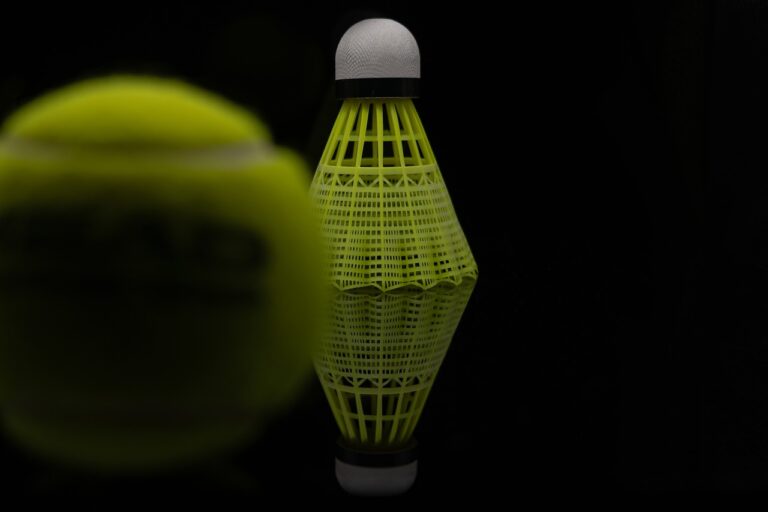The Role of Sports Science in IPL Training Regimens
allpaanel, mahadev book login registration, cricket id online: Sports Science plays a crucial role in the training regimens of players in the Indian Premier League (IPL). With the fierce competition and high stakes associated with the IPL, teams are constantly looking for ways to gain an edge over their opponents. Sports Science has emerged as a key tool in achieving this goal, helping players improve their performance, prevent injuries, and recover faster. In this article, we will discuss the various ways in which Sports Science is incorporated into IPL training regimens.
Understanding the Role of Sports Science in IPL Training
Sports Science is a multidisciplinary field that encompasses various scientific principles and methods to enhance athletic performance. In the context of the IPL, Sports Science is used to optimize every aspect of a player’s training, from physical conditioning to mental preparation. By leveraging the latest research and technologies, teams can tailor their training programs to suit the specific needs of each player, leading to improved performance on the field.
1. Performance Analysis
One of the key aspects of Sports Science in IPL training is performance analysis. Teams use advanced technologies such as video analysis, biomechanics, and data analytics to assess players’ performance during matches and training sessions. By analyzing key performance indicators such as running speed, ball control, and shot accuracy, coaches can identify areas for improvement and develop targeted training programs to address them.
2. Strength and Conditioning
Strength and conditioning play a crucial role in an IPL player’s training regimen. Sports Scientists work closely with strength and conditioning coaches to design individualized programs that focus on building strength, power, endurance, and flexibility. By monitoring players’ progress and adjusting their training plans accordingly, teams can ensure that players are in peak physical condition throughout the IPL season.
3. Injury Prevention
Injuries are a common occurrence in professional sports, and the fast-paced nature of T20 cricket makes players particularly susceptible to various injuries. Sports Science plays a vital role in injury prevention by identifying risk factors, such as muscle imbalances or poor movement patterns, and developing strategies to mitigate them. Through the use of techniques such as biomechanical assessments, injury screening protocols, and personalized rehabilitation programs, teams can reduce the likelihood of players getting injured during the IPL.
4. Nutrition and Hydration
Proper nutrition and hydration are essential for an athlete’s performance, recovery, and overall well-being. Sports Scientists work with team nutritionists to develop personalized nutrition plans for players that optimize their energy levels, recovery, and immune function. By monitoring players’ hydration status, nutrient intake, and body composition, teams can ensure that players are fueling their bodies properly to perform at their best during the IPL.
5. Mental Skills Training
Cricket is as much a mental game as it is physical, and mental skills training is an integral part of an IPL player’s preparation. Sports Psychologists work with players to develop mental skills such as focus, confidence, resilience, and goal-setting. By teaching players how to manage stress, cope with pressure, and stay in the present moment, teams can help players perform at their best when it matters most.
6. Recovery Strategies
Recovery is a crucial component of an athlete’s training program, as it allows the body to repair and adapt to the stresses of training and competition. Sports Scientists utilize a variety of recovery strategies, such as cryotherapy, massage, compression garments, and active recovery techniques, to help players recover faster and reduce the risk of overtraining and burnout.
FAQs
Q: How do Sports Scientists assess players’ performance?
A: Sports Scientists use a combination of video analysis, biomechanics, and data analytics to assess players’ performance during matches and training sessions.
Q: What role does nutrition play in an IPL player’s training regimen?
A: Proper nutrition is essential for an athlete’s performance, recovery, and overall well-being. Sports Scientists work with team nutritionists to develop personalized nutrition plans for players that optimize their energy levels, recovery, and immune function.
Q: How can mental skills training benefit IPL players?
A: Mental skills training can help players develop focus, confidence, resilience, and goal-setting abilities, enabling them to perform at their best under pressure.
In conclusion, Sports Science plays a vital role in IPL training regimens, helping players optimize their performance, prevent injuries, and recover faster. By incorporating the latest research and technologies into their training programs, teams can gain a competitive edge and improve their chances of success in the IPL. With the continued advancement of Sports Science, we can expect to see even greater improvements in player performance and overall team success in the future.







